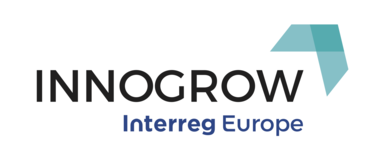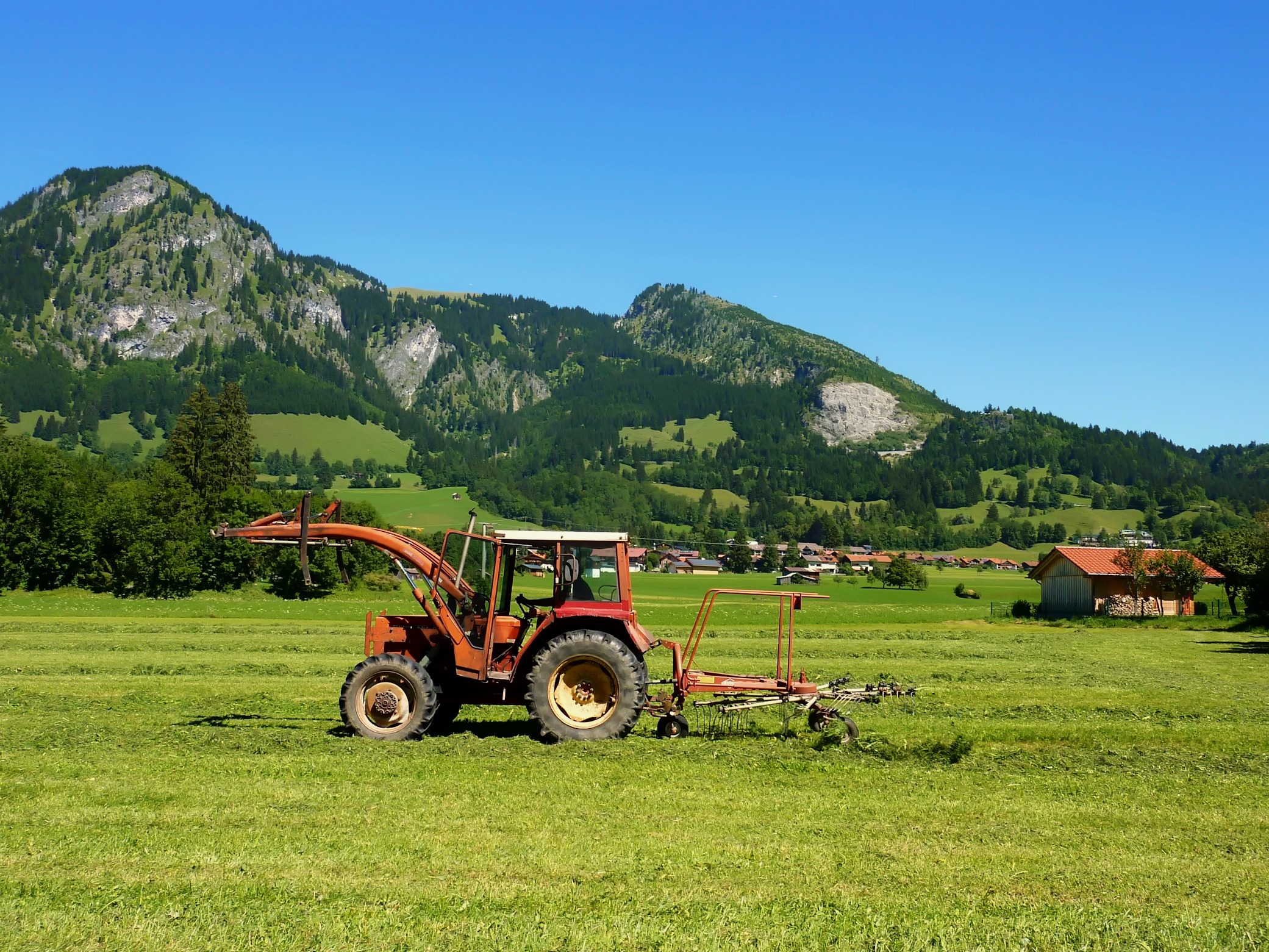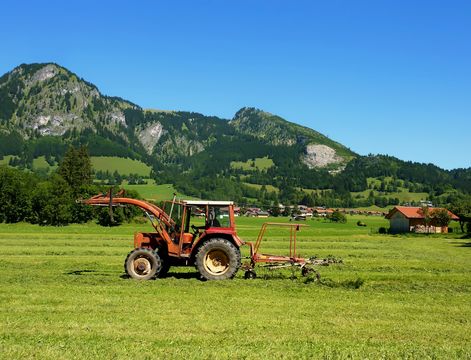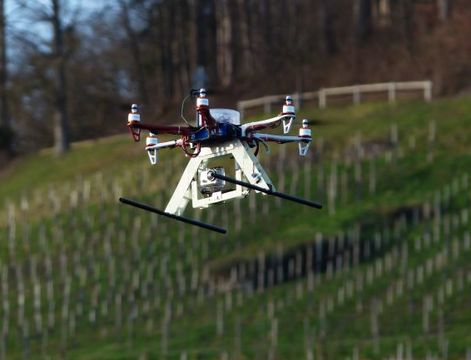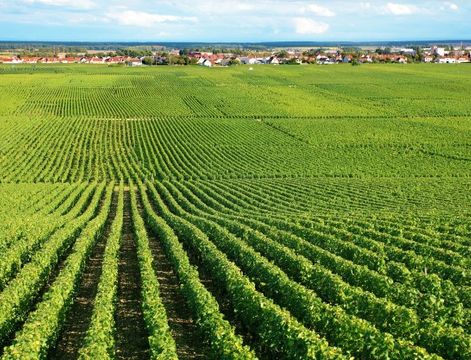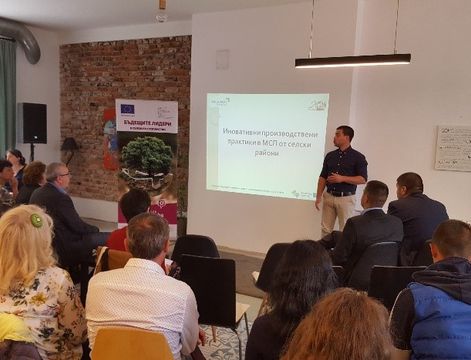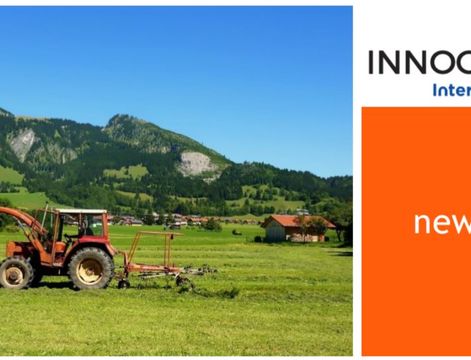This is the 1st part of the 3rd REGIONAL STAKEHOLDER GROUP MEETING AND STUDY VISITS INTRODUCING NEW TECHNOLOGIES AND BUSINESS MODELS OF SMEs IN RURAL AREAS IN SLOVENIA
14 representatives of public and private organizations joint the third regional stakeholder group meeting and study visit, organized by BSC Kranj, introducing new technologies and business models in companies, within the framework of the INNOGROW project, on the 15th of November 2017, at the premises of BSC, Business Support Center, Ltd, Kranj, in Kranj.

The main two topics of the meeting were discussion on policies supporting technological and business development of rural SMEs - financial and project incentives supporting growth of SMEs in the rural areas and introducing good practices.
 Representative from the Ministry of Agriculture, Forestry and Food presented European financing mechanism for Agricultural sustainability and productivity within European Innovation Partnerships (EIP). EIP is acting across the whole research and innovation chain, bringing together all relevant actors at EU, national and regional levels in order to step up research and development efforts and coordinate investments in demonstration and pilots. Ministry is at this stage supporting cooperation on the national and regional level. However projects with foreign partners are predicted for the future. Ministry of Agriculture, Forestry and Food also opened VEM info point where SMEs may get the necessary information about national or European financial incentives and share their ideas for the development, testing or implementation projects. Slovenian SMEs need to monitor calls for financial incentives from two Ministries supporting the innovation and growth of rural SMEs: the Ministry for Economic Development and Technology which gives partially responsibilities for supporting SMEs to Public Agency SPIRIT also responsible for entrepreneurship, internationalization, foreign investments and technology and from Ministry of Agriculture, Forestry and Food, which gives partially responsibilities for supporting SMEs to Public Agency for agricultural markets and rural development. However the main conclusion of this topic was that the success story of the implementation of the actions of the Rural Development Program 2014-2020, through funding from the European Agricultural Fund for Rural Development (EAFRD), has a good chance to be repeated in the framework of programs co-financed by the European Regional Development Fund (ERDF).
Representative from the Ministry of Agriculture, Forestry and Food presented European financing mechanism for Agricultural sustainability and productivity within European Innovation Partnerships (EIP). EIP is acting across the whole research and innovation chain, bringing together all relevant actors at EU, national and regional levels in order to step up research and development efforts and coordinate investments in demonstration and pilots. Ministry is at this stage supporting cooperation on the national and regional level. However projects with foreign partners are predicted for the future. Ministry of Agriculture, Forestry and Food also opened VEM info point where SMEs may get the necessary information about national or European financial incentives and share their ideas for the development, testing or implementation projects. Slovenian SMEs need to monitor calls for financial incentives from two Ministries supporting the innovation and growth of rural SMEs: the Ministry for Economic Development and Technology which gives partially responsibilities for supporting SMEs to Public Agency SPIRIT also responsible for entrepreneurship, internationalization, foreign investments and technology and from Ministry of Agriculture, Forestry and Food, which gives partially responsibilities for supporting SMEs to Public Agency for agricultural markets and rural development. However the main conclusion of this topic was that the success story of the implementation of the actions of the Rural Development Program 2014-2020, through funding from the European Agricultural Fund for Rural Development (EAFRD), has a good chance to be repeated in the framework of programs co-financed by the European Regional Development Fund (ERDF).
 A representative of Slovenian Post introduced a business model of UHub - solutions to reduce logistic pathways and local economic circulation. With electronic commerce and communication national post is annually losing 14% of its previous income. Innovative business model is necessary to keep the organization competitive on the market. The represented business model envisages using the existing postal distribution network and workforce, establishing distribution centers for Slovenian farm products. Beside collecting, packaging and distributing to the demand side they will also provide a consumer feedback on the quality of products to the farmers and establish also their own service quality monitoring. Shortening logistic pathways is beneficial to the environment, quality of fresh food, therefor being indirectly beneficial to human health and significantly reduces the cost of transport. Reducing the transport cost, logistic costs and also reducing the number of intermediaries means higher purchase prices of products for farmers and better results of economic local multiplicator indicating how fast the money is circulating within a specific local community.
A representative of Slovenian Post introduced a business model of UHub - solutions to reduce logistic pathways and local economic circulation. With electronic commerce and communication national post is annually losing 14% of its previous income. Innovative business model is necessary to keep the organization competitive on the market. The represented business model envisages using the existing postal distribution network and workforce, establishing distribution centers for Slovenian farm products. Beside collecting, packaging and distributing to the demand side they will also provide a consumer feedback on the quality of products to the farmers and establish also their own service quality monitoring. Shortening logistic pathways is beneficial to the environment, quality of fresh food, therefor being indirectly beneficial to human health and significantly reduces the cost of transport. Reducing the transport cost, logistic costs and also reducing the number of intermediaries means higher purchase prices of products for farmers and better results of economic local multiplicator indicating how fast the money is circulating within a specific local community.
